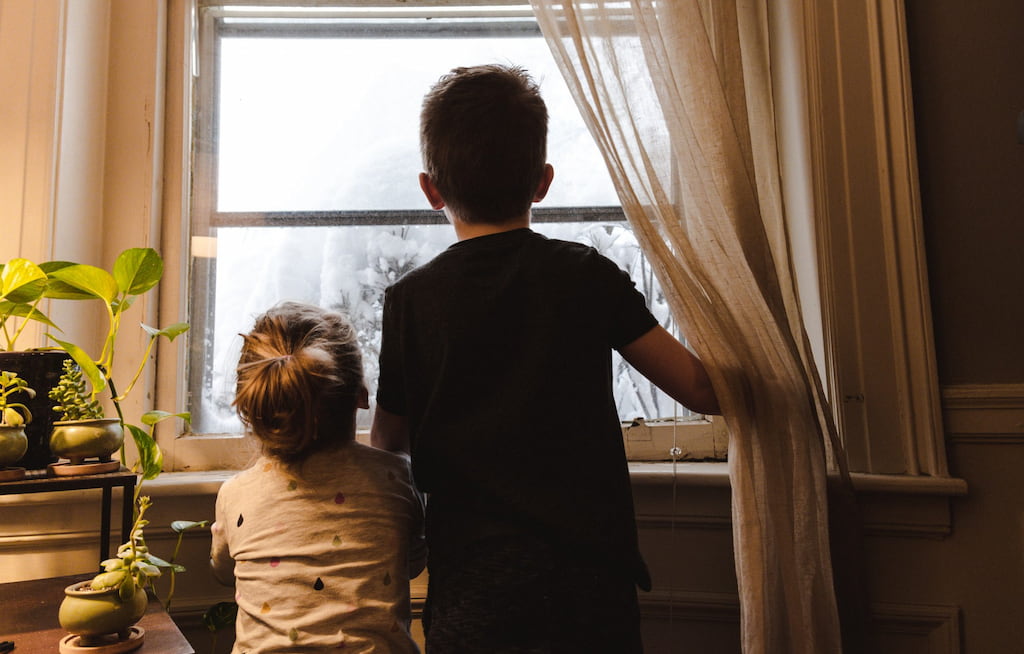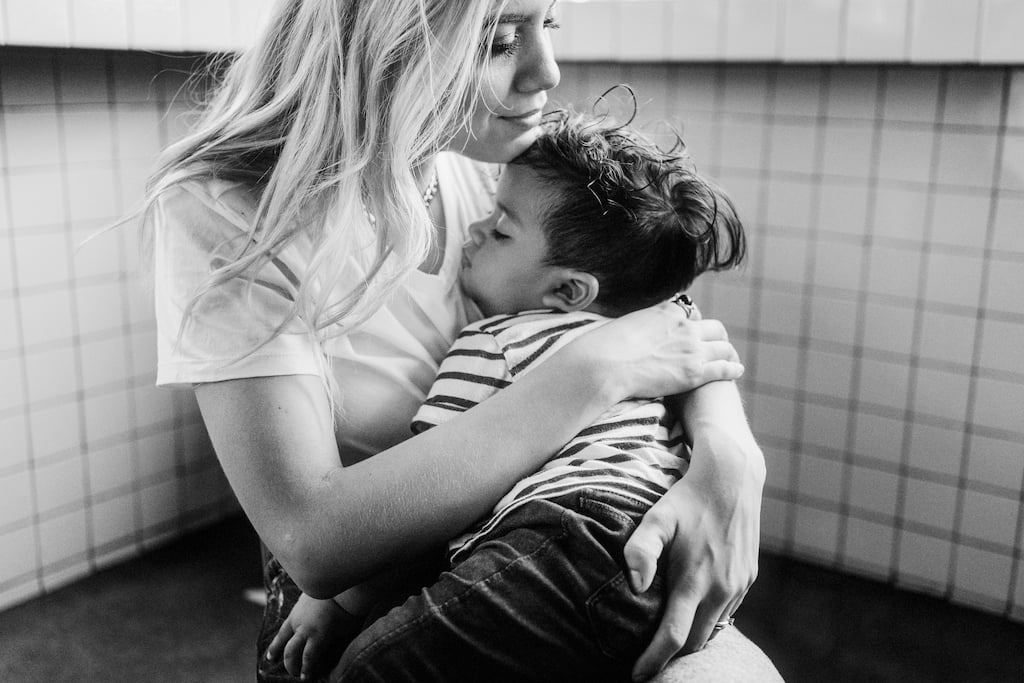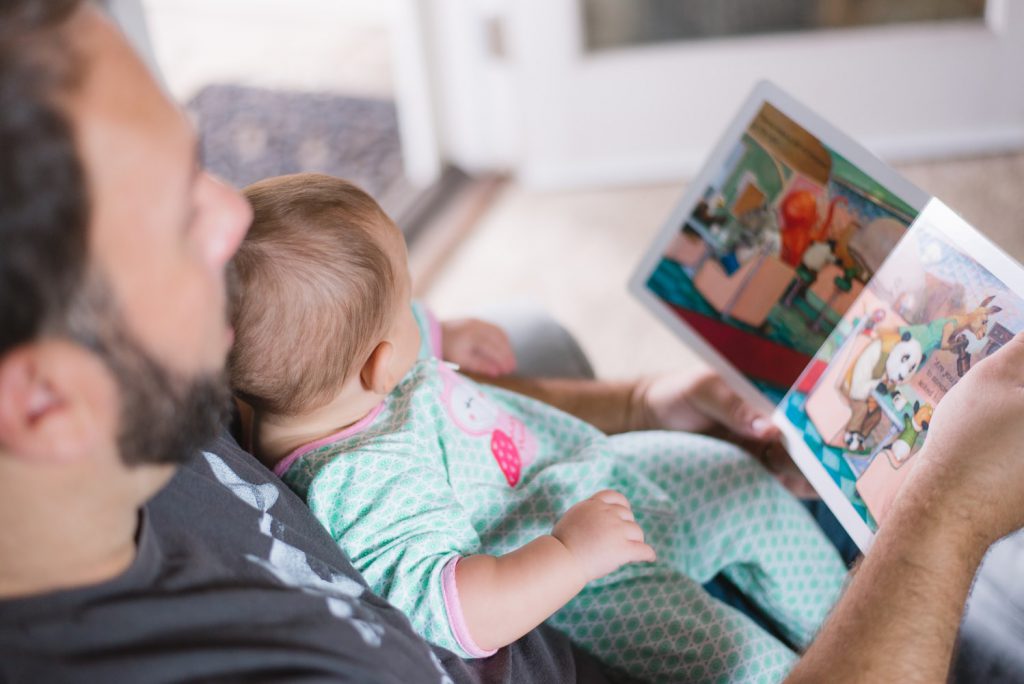Supporting Children During the COVID-19 Pandemic

Contents
We can all agree that right now throughout the world we’re all experiencing a pretty unique and surreal situation. What has been happening across the globe over the past couple of months is affecting every one of us in a different way, triggering different reactions and emotions within each of us. And it’s not just us adults who are impacted by this; children are relying more than ever on their parents, guardians, and teachers for guidance and support on how to cope with this experience. But how can we offer our children perspective and comfort when we, ourselves, sometimes feel like we’re reeling from one moment to the next? Today we’ll share some useful suggestions that may support you in helping the children in your life manage this uncertainty and change.

How are you feeling?
First, before thinking about how you can best support the children in your life, it’s important to pause for a moment and check in with yourself. How have you been feeling throughout this whole experience? Angry? Scared? Confused? Worried? Stressed? Numb? Maybe a mix of them all. However you’ve been feeling, give yourself the permission to acknowledge and really feel those emotions. It’s completely natural that you’re feeling a mix of strong emotions. You may be feeling frustrated trying to work from home while attempting to homeschool or entertain your kids. You may be angry at the fact that all of your plans or trips have to be cancelled. Perhaps you’re feeling a great deal of sadness and compassion for others you know who have been significantly impacted by this pandemic.
Know that whatever you’re feeling is absolutely normal and is no cause to feel guilty, responsible, inadequate, or like you’re failing. Every adult—every one of us—has a child inside of us. And especially during uncomfortable or challenging periods, this inner child tends to react much more strongly to the smallest of changes, fears, or uncertainties. That being said, we can all acknowledge that right now we’re experiencing a great deal of all three of those triggers. So in addition to tending to our own children, we first need to acknowledge and soothe our inner child. Ask yourself what you can do to calm this inner child? What do you need right now? What would help you feel loved and supported during this time? Invite a conversation with your loved ones to share with each other what support you each need the most during this time. It may be 15 minutes a day of just quality conversation, a long hug, dancing, journaling, exercising, or participating in your favorite hobby at home. Now, more than ever, we need to acknowledge what we need to show up as our best selves, not only for our loved ones, colleagues, and friends, but for ourselves.
What support systems do you have in place? How do you generally cope with and overcome challenges in your life? If you were to imagine yourself in a relaxed and secure place, what would that look like?
As an extra tip, I’d recommend writing the answers to these questions down. Seeing these thoughts written out on paper will help ground you and also serve as a reminder to take care of yourself throughout this period of time.

Explaining the situation to children
By taking the time to check in with yourself and observe how you’re feeling, you’ll find it easier to explain to a child what’s currently going on right now. One thing to consider is that children pay more attention to the way something’s being told rather than what is being told. That means that while explaining the situation, we should be very mindful of the tone of voice we use, our facial expression, body language, and emotional state. The emotions we express can easily be picked up by children, impacting the way they interpret what’s happening and how they react to it. For this very reason, how you react and interpret these circumstances is very important. Notice, did your mind immediately resort to cynicism or optimism? Did you say to yourself something along the lines of, “Of course this is happening; something bad is always happening and that’s just the way it is”, or were you thinking to yourself, “Okay, this is a really difficult situation, but we’ll overcome it and soon it will pass and things will be better.” Notice what usually comes to mind; generally those thoughts will greatly impact how you’re feeling about the whole situation, and however you’re feeling will absolutely be conveyed to the children around you and serve as a queue for how they react.
As you may be picking up on by now, how you support your children during this process will also be an exercise in better understanding how you handle anxiety, change, uncertainty, and fear. This experience can serve as an opportunity for you to explore your tolerance for uncertainty and how willing you are to accept things that you can’t control. Based on what you learn about yourself, you can ask yourself the following questions and consider the answers. Why is it difficult for you to accept that you may not be able to control everything that’s happening in your life? Do you always try to control everything? Why do you think you feel the need to do so?
Find a moment when you’re feeling at ease and explain to the children the situation in a clear, gentle, and calm manner. If the child is still quite young, you can make a story out of it, or you can explain it with a drawing. You can explain the Coronavirus as being a cousin of the flu, something they more easily understand. You can mention how once it enters the body, it causes a cough, fever, cold, and fatigue. Assure them that there are so many smart and dedicated people working on finding a cure and that each of us has antibody soldiers in our bodies that can help us fight off this sickness. You can explain to them that they can support their soldiers by taking precautions like washing their hands, sneezing into the crook of your elbow, and staying home for a while. It’s important to remind your child that they’re healthy and safe. What your child needs most right now is to know that their health comes first and that, as their parent, guardian, or teacher, you are doing everything to preserve it.

Opening space for emotions
Once you’ve spoken to your child about this difficult time, creating a space for their thoughts and feelings is one of the most important parts of managing the process well. What comes to their mind when they see and listen to the things happening around them? Do they have any questions? You may not have all the answers, and that’s okay to express. Sometimes, if you feel it would be appropriate and helpful for them to know, you can search for the answers to those questions at a later point and follow up with them afterwards with a thoughtful answer.
If they enjoy drawing, you can ask them what color these feelings would be and what shape they may look like. You can ask them what they may need from you to help feel more comfortable, safe, and loved. What makes them feel happy right now? Give them the space to talk about these and feel free to turn these questions into a game or story! Speaking of games, playing a child’s favorite game is a great way to relieve fear and anxiety, and not just for the child! They can even invent their own game, giving them the space to write their own rules, express themselves, and interact with their loved ones. Your only job is to observe the child without interrupting and without judgement. In this way, the child feels that their emotions are accepted and embraced; they are heard, seen and understood. All of this calms them down under these difficult circumstances and allows them to feel safe.

Making it easier for your child to deal with difficult emotions
When you see that your child is having a hard time coping with their difficult emotions, you can explore together how to deal with them. Here are some suggestions that may seem obvious but are easy to overlook. Physical contact with a trusted, loved one automatically calms us down and triggers the oxytocin hormone that makes us all feel safe. For example when your child seems scared or anxious, hug them, hold their hand, and keep that physical contact to soothe them. Laughing out loud or crying can also release stress. Being active can also help your mind and body relax. As much as you can within the confines of your home or garden, try to get moving with your child. Perhaps do some jumping jacks, wrestle, enjoy some frog jumps, or dance! You can even try to meditate, reflect, or read together. Activities like cooking, listening to music, playing with silly putty, water, a bowl of beans, or applying essential oils can help children regulate their feelings. As things continue on, you can inform your children about new developments or rules that will directly impact their daily lives. That being said, be mindful of what other information sources they’re exposed to. For example, it may be stressful or nerve-wracking for a child to be constantly hearing the TV on with breaking alerts and commentary constantly flooding their environment. So perhaps limit the time you have the TV on and be wary of what they’re listening to.
Because they’re little and dependent on their parents, children have limited space where they feel active and in control. To be calm and secure, they need to feel that they’re in control. For this reason, it’s important to stick to their daily routines as much as possible. Additionally, they can manage a space that belongs solely to them and no one else. This could be taking on responsibility for a household chore that is suitable for their age, like watering a plant. They can prepare a plan for one of their dreams they want to realize once this period is over and hang it on their bedroom wall.

Protecting boundaries
Since during this time our families are spending more time together, oftentimes in the confines of our own home, there may be times when patience and frustration boils up. Boundaries may shift and this shift can lead to us feeling overwhelmed, exhausted, and emotional. That being the case, it’s so important to create some healthy boundaries and time for yourself. This also includes creating a new daily schedule and routine for your family that everyone is on board with and abides by. This schedule can include play time, nap times, quiet time, time to focus on quiet activities, and time to eat and relax. As a parent, especially, establishing boundaries that keep you well-rested, calm, and peaceful will help you be a better parent and show up with more heart and energy.
As a final reminder, please keep in mind that it is unrealistic to expect that your life and emotions right now will feel normal during this crisis. Coping with so many changes, fears, and uncertainties, having to accept so many things outside of our control—it’s challenging all of the parts of us that crave stability, consistency, and security. Be gentle and patient with yourself and your children, give yourselves the permission to feel those uncomfortable emotions, and most importantly, be there for one another.


